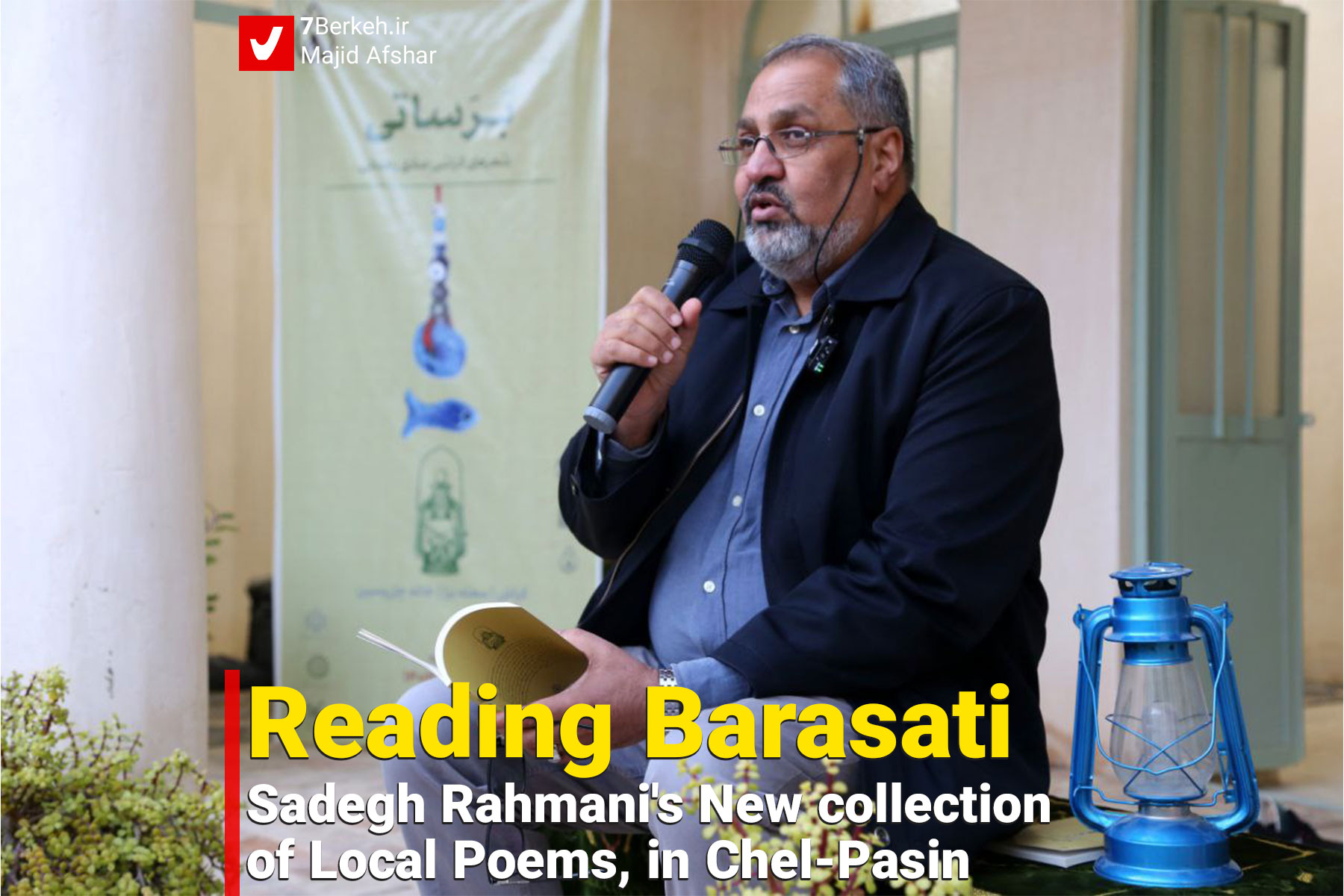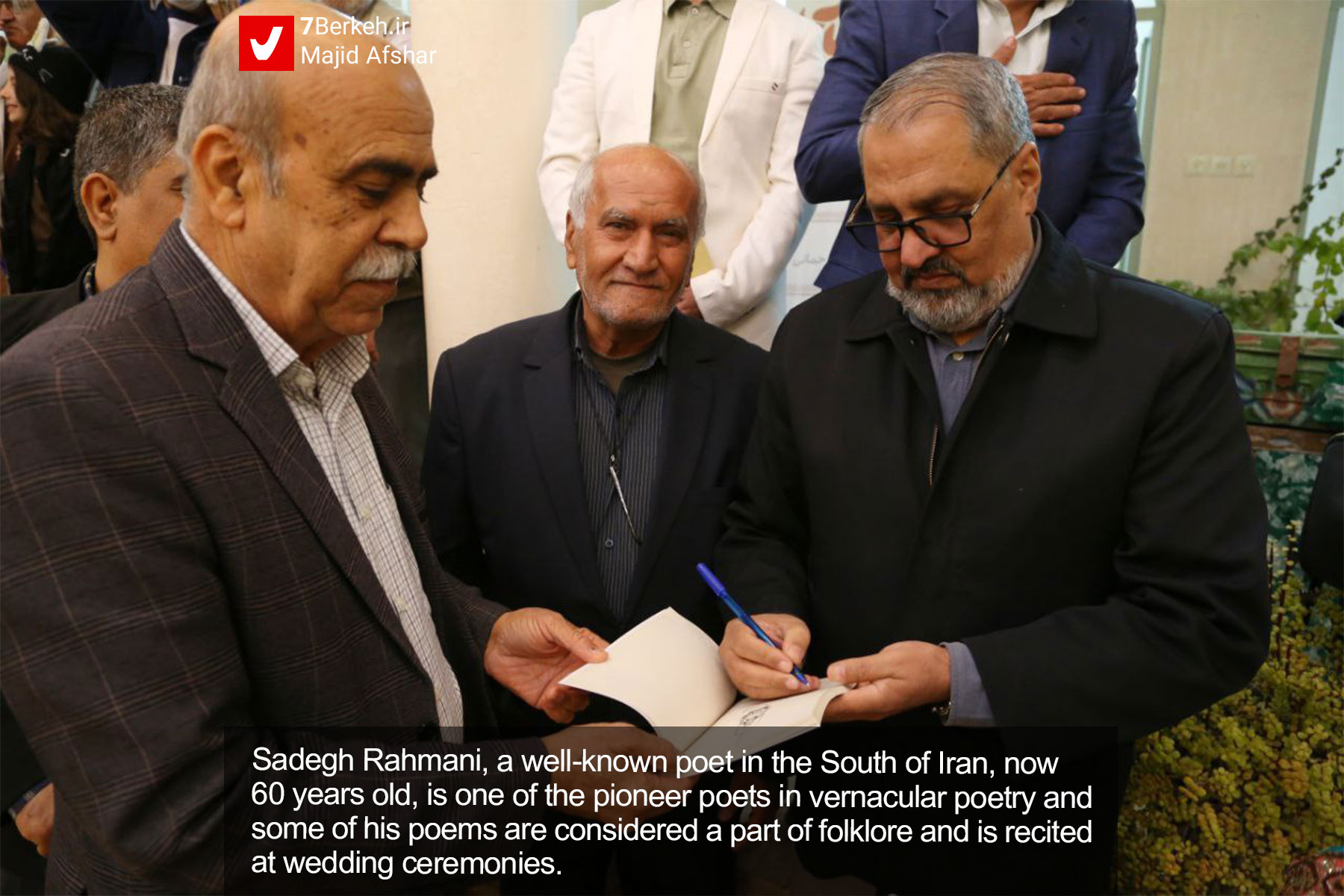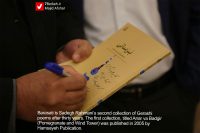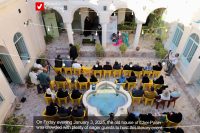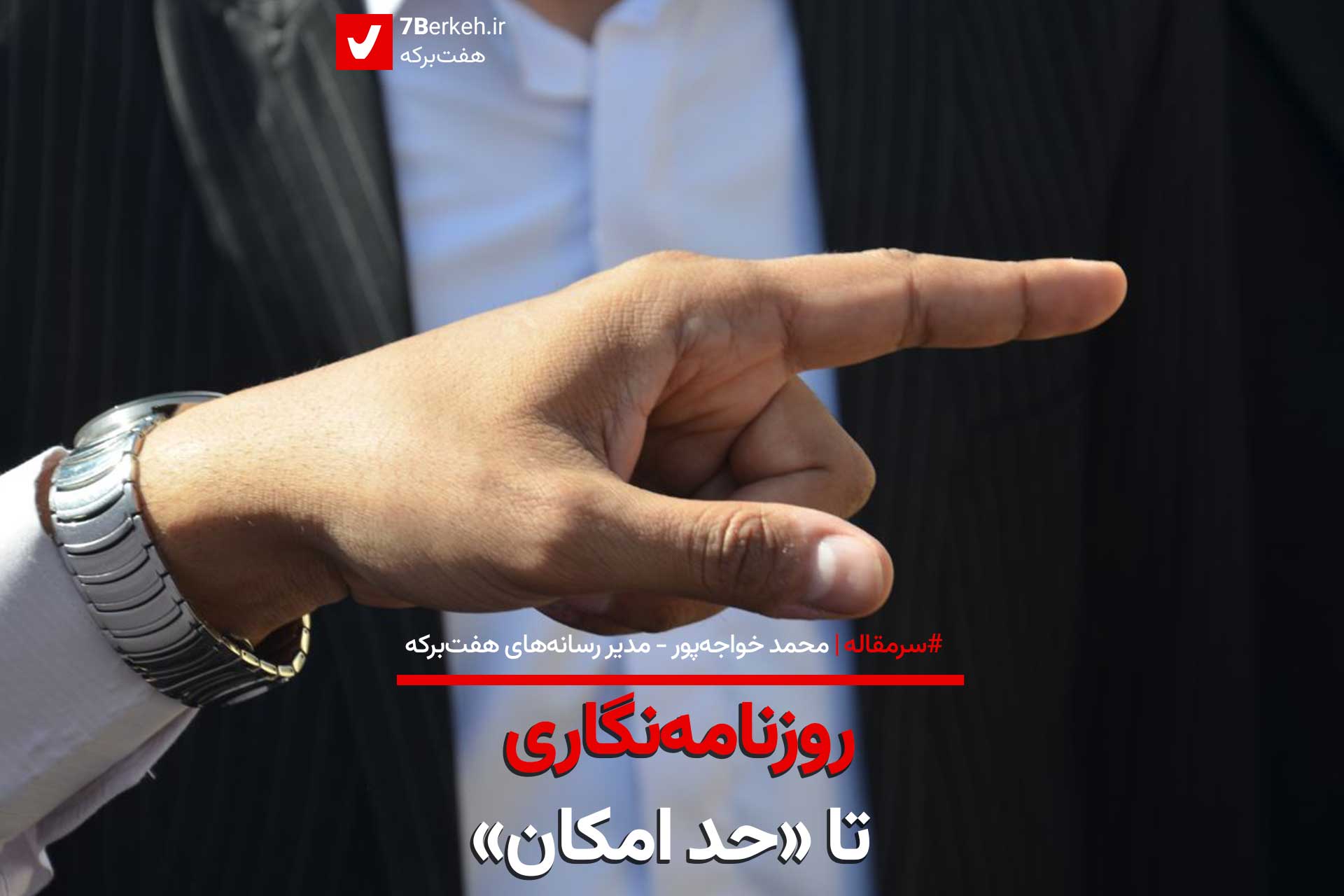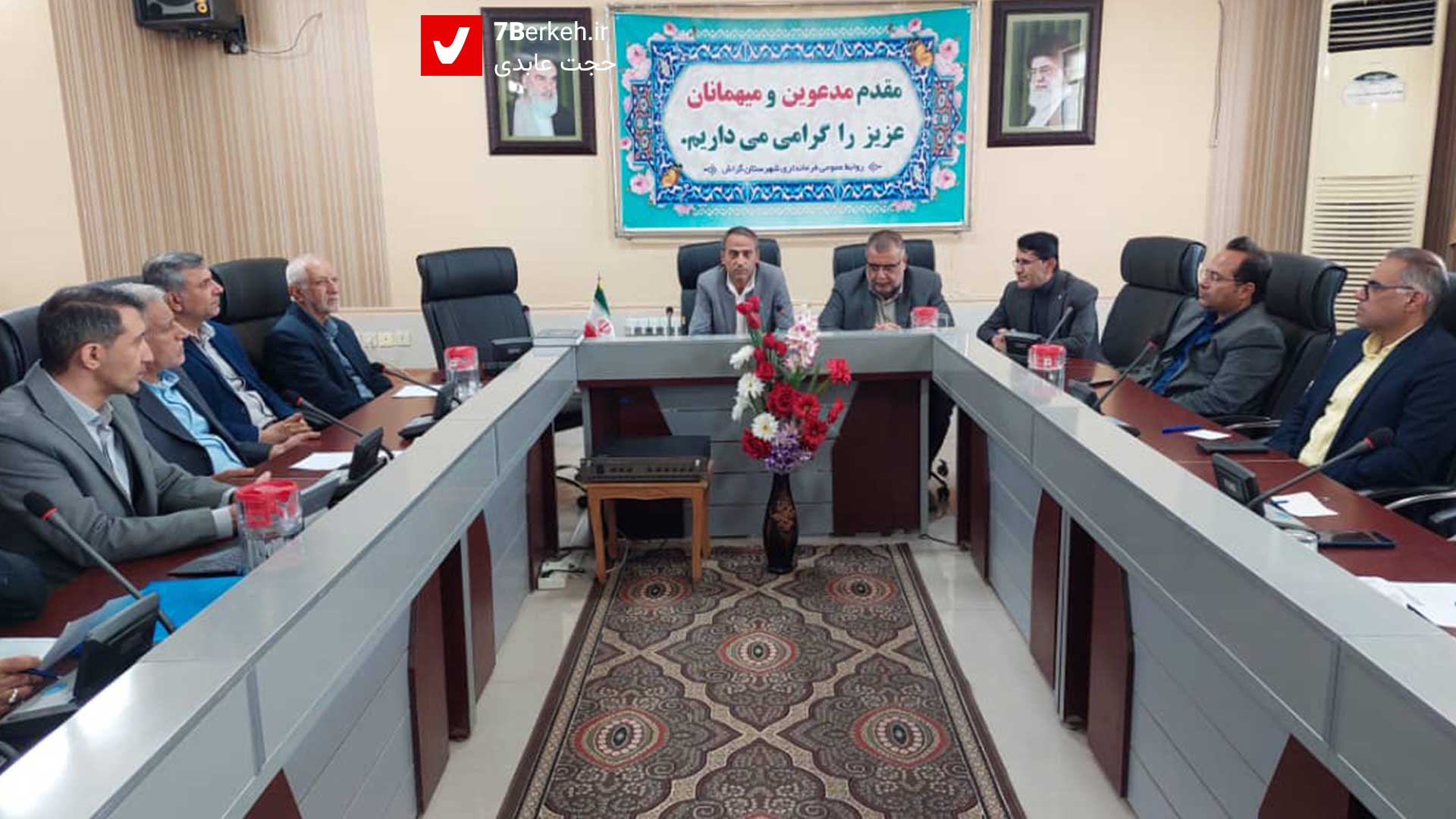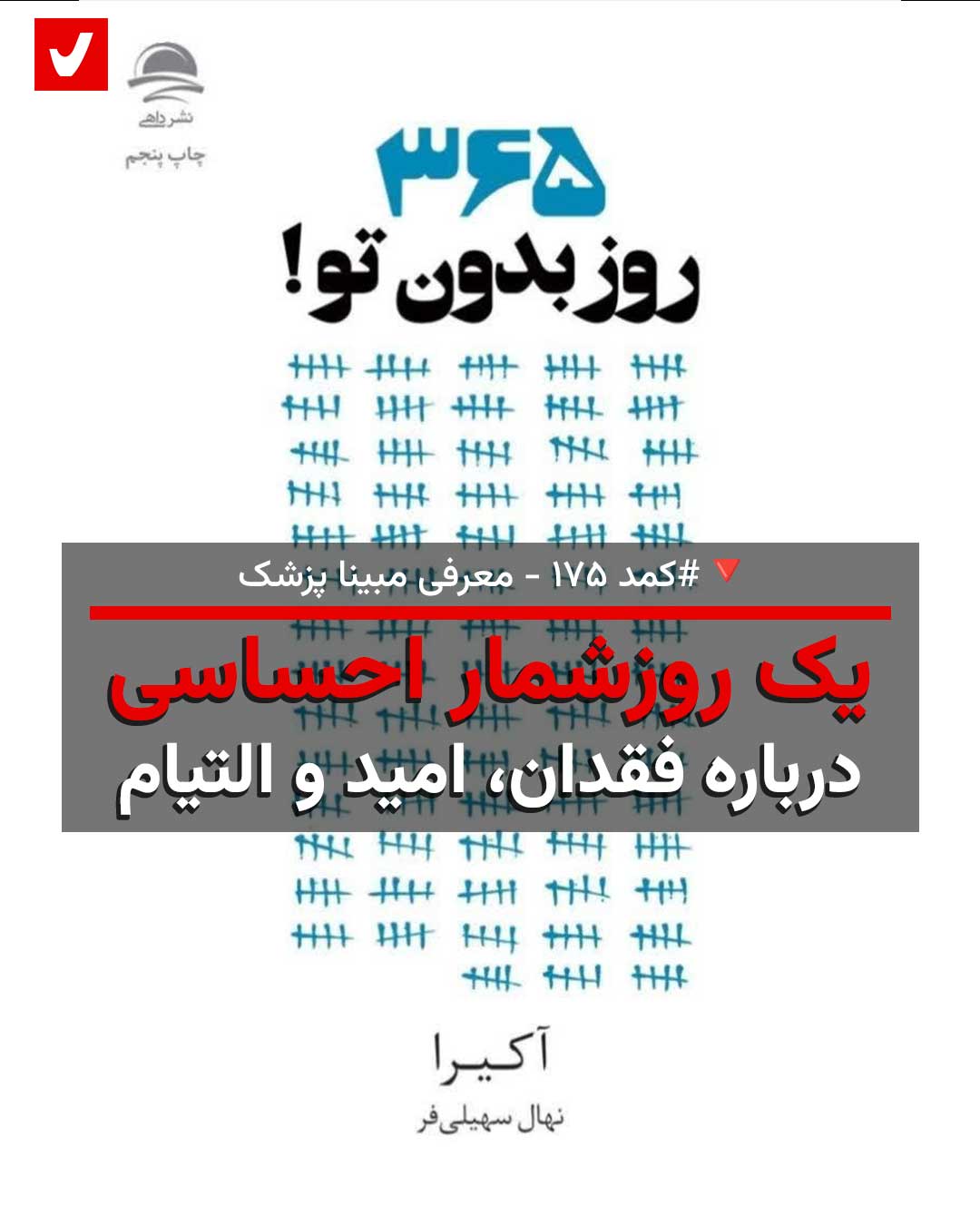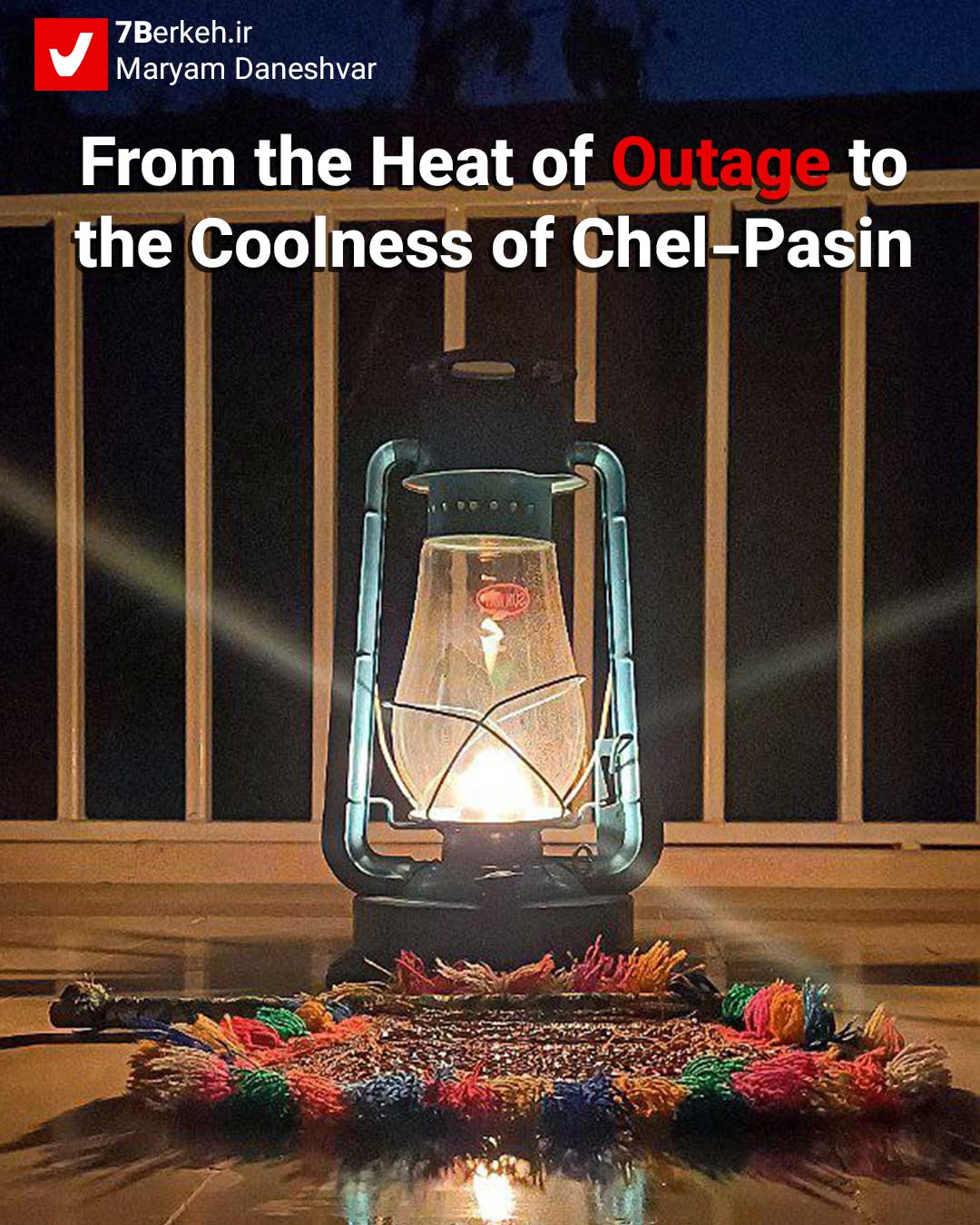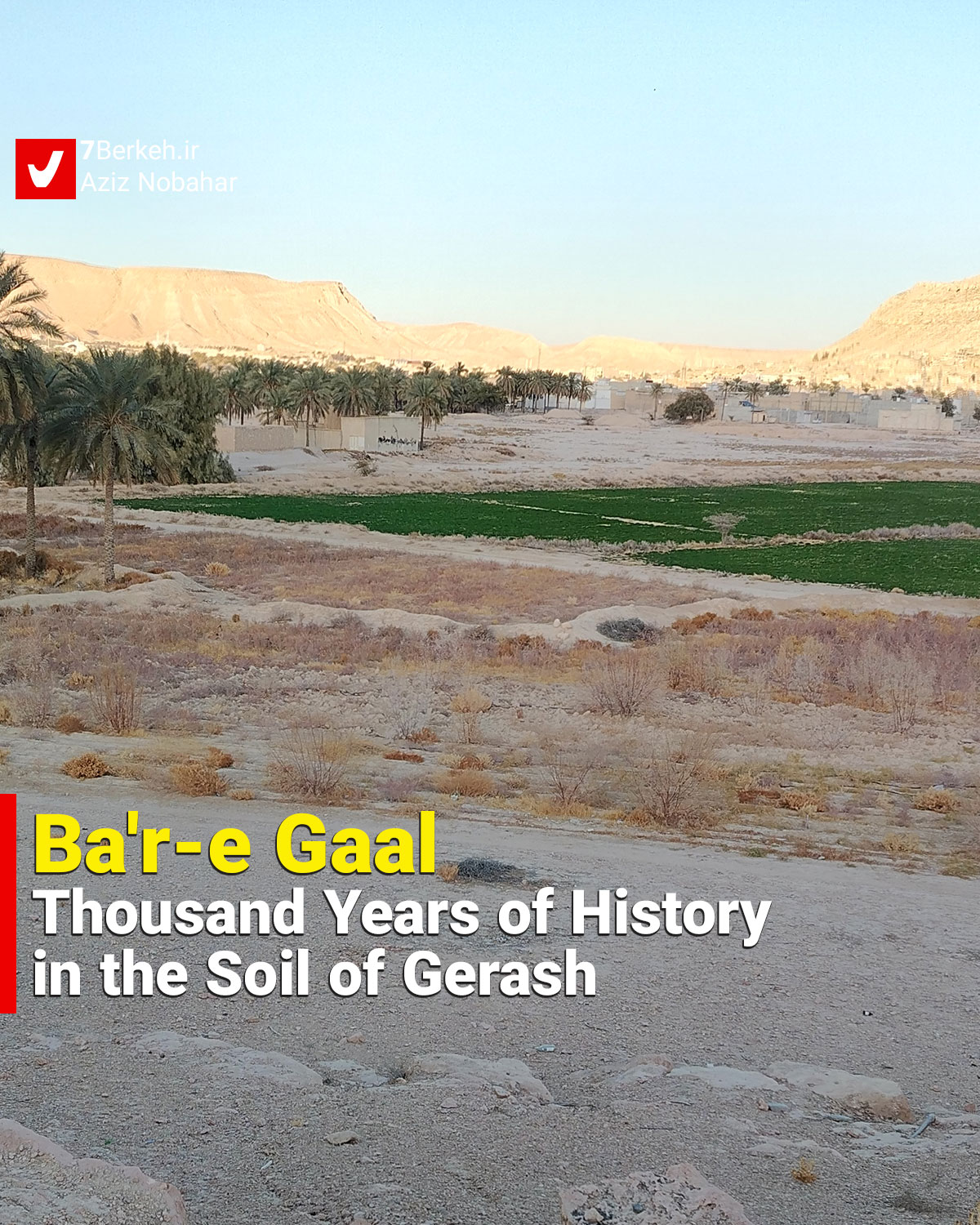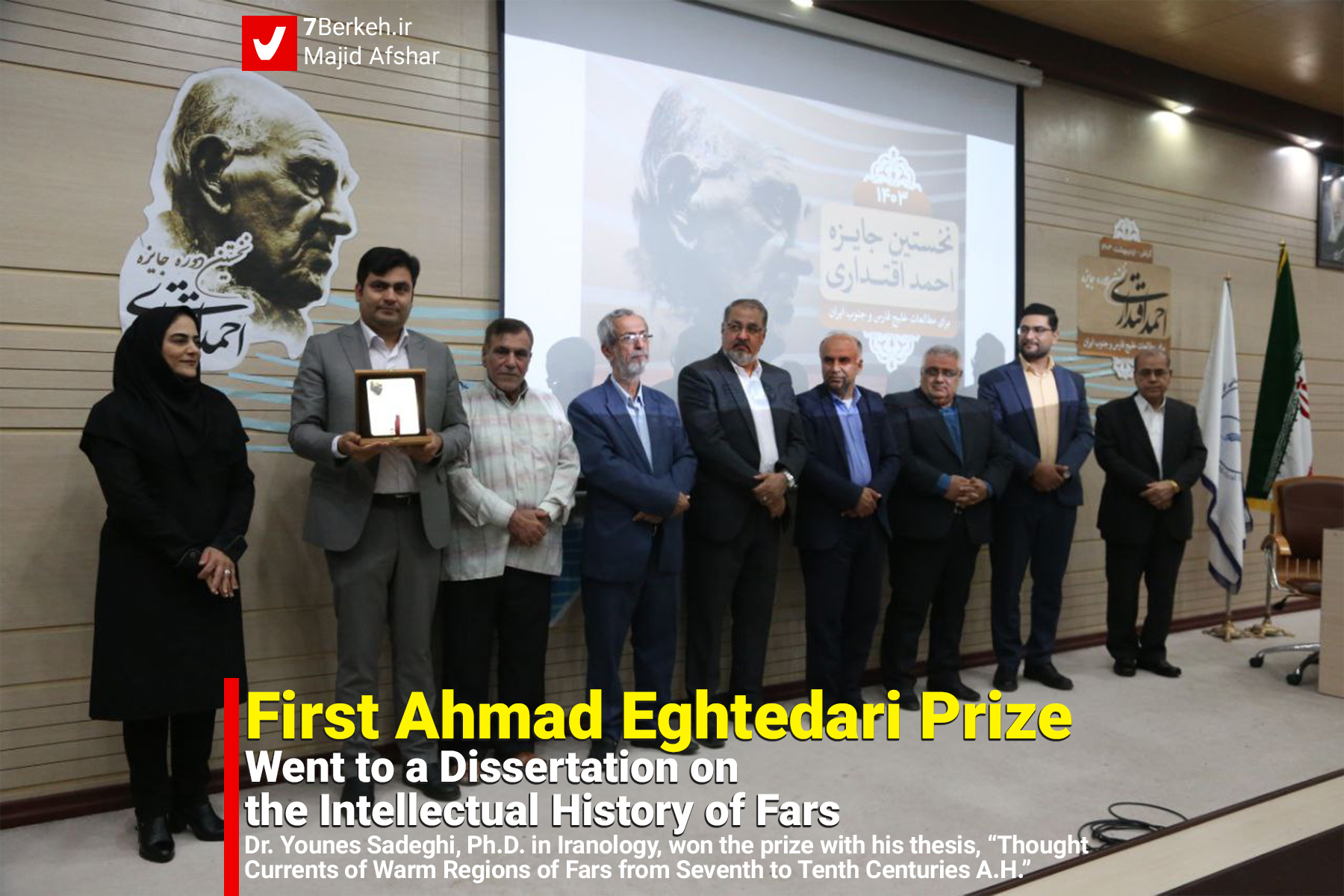7Berkeh – Raheleh Bahador: Barasati, Sadegh Rahmani’s latest dialectical poem collection, was released on a winter evening in an old house called Chel-Pasin to commemorate both Gerashi dialect in poetry and Gerash historical past.
About Sadegh Rahmani and Barasati
Rahmani’s Gerashi poems are a blend of regional nature description, cultural heritage and human emotions. Beyond their artistic beauty, these poems play a critical role in perpetuating the local language and culture. Such works resist the oblivion of linguistic heritage and allow both local and national audiences to gain a deeper apprehension of the lives of people in the South of Iran.
The name of Rahmani’s latest book is derived from “Barasati”, an oil-burning lamp in the South of Iran that has been used on rainy days for past decades. Barasati has two chapters. 28 poems are in the Gerashi dialect and the first of them is titled “Zer-Behnah” (money given by the mother of a newborn baby to the guests). The book has been published by Hamsayeh Publication in 84 pages and 300 copies, priced at 120,000 Tomans.
Reading Barasati in a Literary Event
On Friday evening January 3, 2025, this old house was crowded with plenty of eager guests to host this literary event. Barasati is Rahmani’s second collection of Gerashi poems after thirty years. The first collection, titled Anar va Badgir (Pomegranate and Wind Tower) was published in 2005 by Hamsayeh Publication. Sadegh Rahmani, a well-known poet in the South of Iran, now 60 years old, is one of the pioneer poets in vernacular poetry and some of his poems are considered a part of folklore and is recited at wedding ceremonies.
Winners of Gerashi-Khani Competition Awarded
In the first part of the program, fourteen winners of a local recitatoin competition were awarded. The competition was held in 18 weeks, starting on July 25 and ending on December 28, 2024. The participants recited some selected poems from Rahmani’s first book, Pomegranate and Wind Tower (2005) in videos as they were posted on 7Berkeh Instagram page. The winners were selected by followers’ votes. The winners who were mostly kids received a certificate of appreciation, a local dull made in Hashfakh, a workshop managed by Sakineh Zeinalpour, three poetry books written by Sadegh Rahmani and a storybook titled Sarakh[2] written by Hourieh Rahmanian.
Reading Dialectical Poems by Poets of the Region
In the second part of the program, some poets from the neighboring cities recited their poems: Ali Akbar Shahmohammadi from Gerash, Abdol-Reza Maftoohi from Lar, Rashed Ansari from Dideh-Ban, Mohsen Khojasteh from Fedagh and Romisa Zamani from Evaz.
Afterwards, Farhad Qaedi, a singer from Khonj, sang a local song called “Allah, Give us Rain” and the guests recited with him. This folklore song is a local-ritual and prayer-like poem with the theme of begging God for rain and was sung by older generations.
Rahmani’s Poetry, a Bridge Between Past and Present
The time came to introduce and unveil Barasati. Ahmad Khezri, a journalist and cultural activist from Evaz was the main lecturer. He asserted the importance of local dialects and said: “The identity of any nation depends on language, and language makes the nationality stable, and accordingly the Persian language preserves the Iranian identity. The local dialect and language strengthen the Iranian identity and the Persian language. The Southern provinces of Iran have a high potential for Persian language and art, but many of them have been neglected”.
“In our folklore, the local dialect has a specific place,” he added, “poetry can attract the audience and be more effective than prose.” Khezri then explained the vital role of poets like Sadegh Rahmani in connecting the past and present generations and stated: “In folklore literature, the people of old generations are introduced to the new generations. Some people must link the past generation to today’s generation. No one can create this bridge better than artists, poets, and writers; and now Dr. Sadegh Rahmani has created it.”
Then Sadegh Rahmani talked shorty and read some quatrains from his new book.
Navid Bazyar, a cultural activist from Khoor, was the next lecturer. He stated, “Rahmani’s book has three main characteristics. The first is humor, which is based on reality. The second is observing the tome of the colloquial language; and the third is observing the harmonious rhythm.”
You can see other photos of the event in here.
[2] Sarakh is the name of a sack that was brought to a friend’s home as a gift in old times and contained various colorful gifts.
